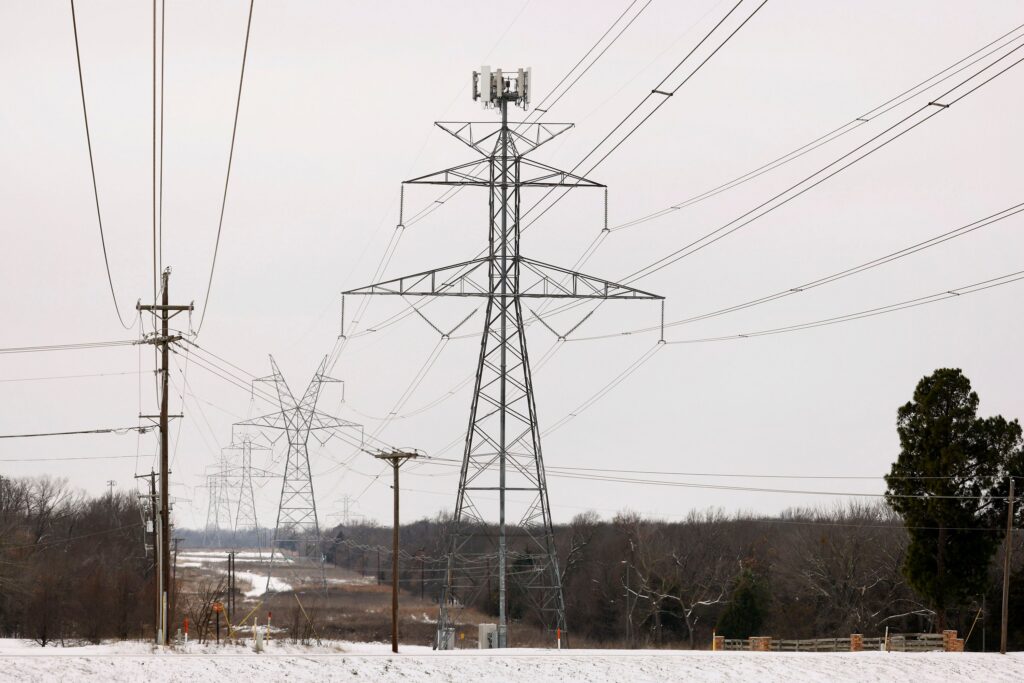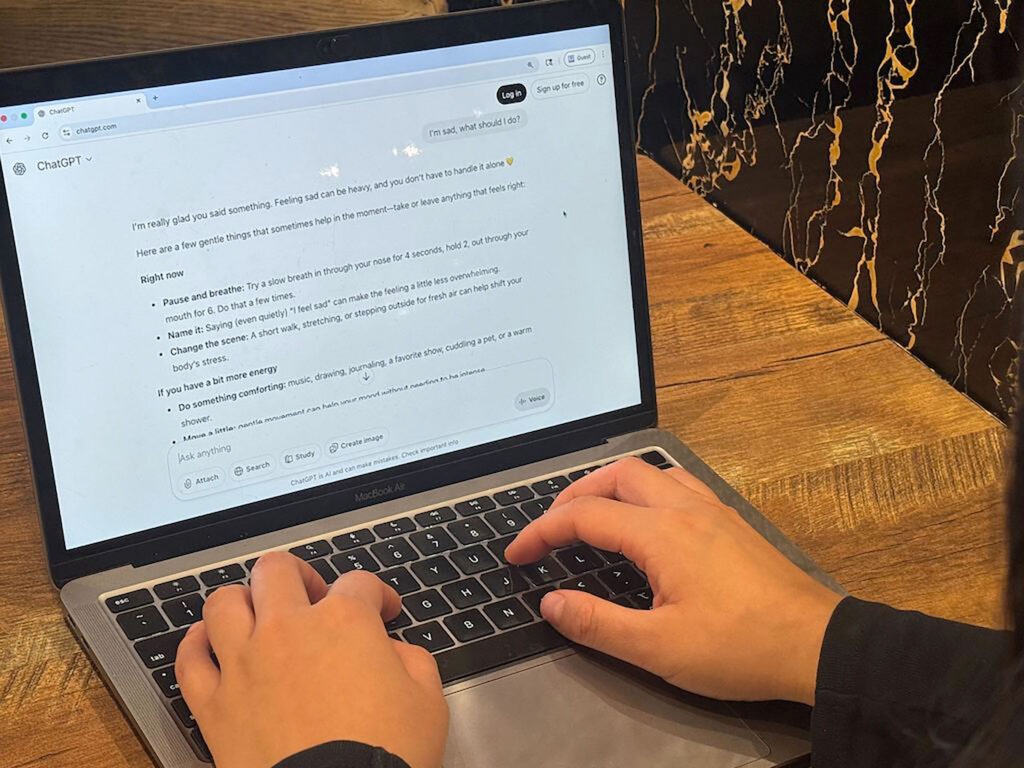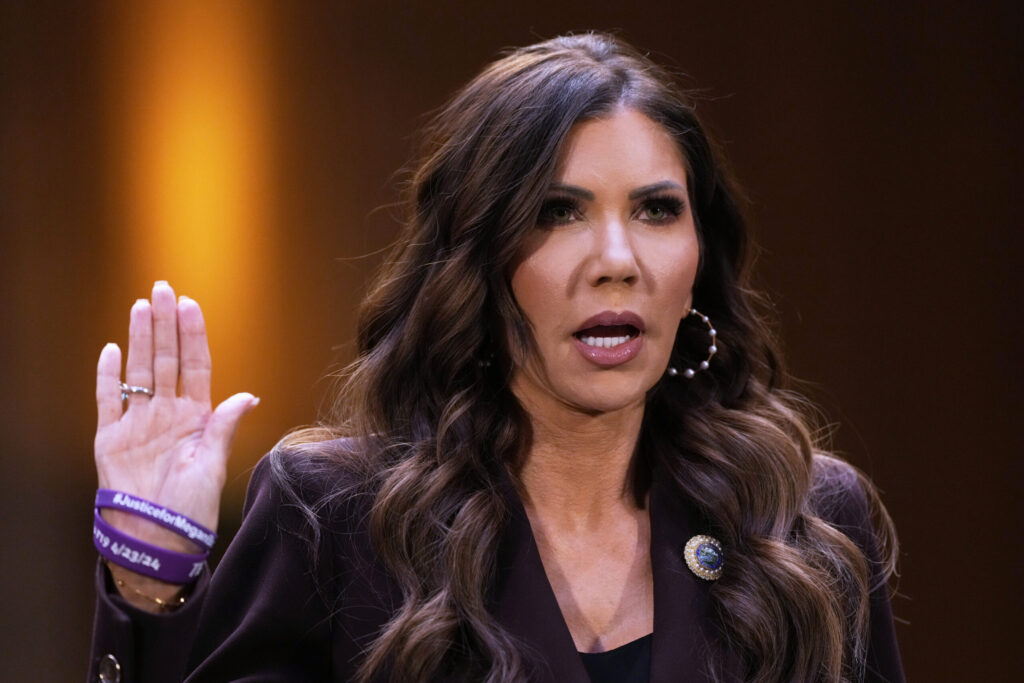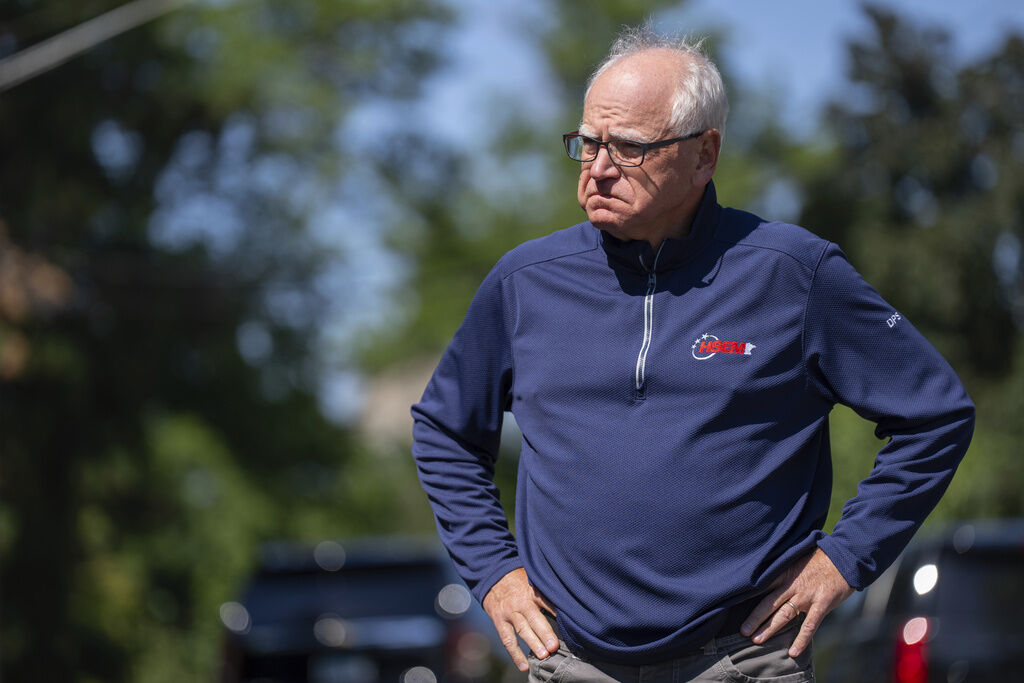Q&A with Sen. Gonzales and Rep. Froelich | On making Colorado a sanctuary for abortion access

In the wake of the Supreme Court’s ruling to overturn Roe v. Wade, Colorado has emerged as a national leader for abortion protections.
Even before the Dobbs v. Jackson Women’s Health Organization decision was released in June, state lawmakers enshrined abortion as a fundamental right under the Reproductive Health Equity Act. Among the most permissive abortion laws in the country, it prohibits state and local public entities from restricting a person’s right to continue a pregnancy, have an abortion or use or refuse contraception, and declares that fertilized eggs, embryos and fetuses do not have independent rights.
Shortly after, Gov. Jared Polis signed an executive order to withhold records from states that may impose criminal or civil penalties on those who receive or provide abortions in Colorado. In addition, the first post-Dobbs effort to ban abortion in Colorado failed to make the ballot, and state lawmakers have begun working on a bill and ballot measure that aim to further expand protections for abortion access in the state.
Colorado Politics sat down with two of the women behind Colorado’s abortion protections — Sen. Julie Gonzales, D-Denver, and Rep. Meg Froelich, D-Greenwood Village — to discuss what they’ve done so far and what they plan to do next.
Colorado Politics: What was your reaction when you first heard that the Supreme Court overturned Roe v. Wade?
Sen. Julie Gonzales: Because we had seen a leak of a draft opinion, we knew that this was coming. I was proud of the work that we had done at the state level to prepare, but still, the morning that we received the decision it felt like a gut punch. It was still just a stunning decision because it was the Supreme Court telling women across this country you have fewer rights now than you did yesterday. It was stunning.
Rep. Meg Froelich: I’ve been jumping up and down for 30 years saying this day was coming and it doesn’t bring me any joy to say that. My son is a camp counselor and he said that morning the decision came down, there were 13-, 14-, 15-year-old girls just sobbing. They instantly understood what the message was from the Supreme Court about their citizenship, their equal worth as humans, their agency over their own bodies. It was visceral and it was a real statement. Of course, we’re grateful for Colorado and heartbroken for people outside our borders in states where their legislatures are experimenting in cruelty and trying to figure out how far they can reach into people’s private lives.
Abortion ban fails to make Colorado's November ballot
CP: As mentioned, you had prepared for this. The two of you, along with Rep. Daneya Esgar, were the prime sponsors behind the Reproductive Health Equity Act, which passed the legislature just two months before the Supreme Court’s ruling. Tell me about your decision to bring forward that bill.
JG: Back in September of 2021, when Texas was moving forward with its six-week abortion ban, folks organized a rally on the west steps of the Capitol. I showed up and ran into a few constituents there. One constituent had moved from Texas to Colorado in light of the policies that Texas was moving forward, and she asked, “What are y’all going to do here in Colorado?” And I was like, “You know what, I don’t know, but we’ll start researching and see what we can do.” That’s how Rep. Froelich, Majority Leader Esgar and I came together and started doing the work that ultimately became the Reproductive Health Equity Act. It was constituents, women, pregnant folks telling us that we needed to step up and affirmatively protect Coloradans’ reproductive healthcare decisions. On the issue of reproductive freedoms, we had been playing defense, but it was time for us to do something proactive.
MF: People outside of the building were the reason why we did this. Thousands of people contacted us and said, “Do something, do something, what is happening?” I have three children, all three of them were saying, “Mom, you have to.” I’ve been involved in the reproductive rights movement since I can remember, around 30 years. I was briefly executive director of Pro-Choice Colorado NARAL. We’d always sort of felt like, “Well, we have Roe.” The fact that you can access an abortion in Colorado seemed to be enough. But with the fall of Roe on the horizon, we really felt like we better get something on the books that establishes this as a fundamental right. So, we began crafting the bill through this lens of making sure that we’re including folks who have been left out in the past and then making the language in the bill really tight. It just says three things: You have the right to refuse or access contraceptives, you have the right to refuse or access an abortion, and embryos and fertilized eggs do not have individual rights of personhood.
CP: The Reproductive Health Equity Act received a lot of push back from Republican lawmakers. The House floor debate lasted more than 23 hours, which is likely a state record. Were you expecting this?
JG: We knew that the Republicans were going to do everything that they could to try to break down the debate. I was watching my colleagues in the House demonstrate solidarity and support for one another. They said time and time again, “We will be here as long as it takes.” So, seeing that level of pushback and opposition from the Republicans, but then also seeing the ways the Democrats banded together to support each other through what was a really grueling and, at times, a really ugly debate. In both the House and the Senate, there were points at which we had a debate that was worthy of the gravity of the issue, at times we had a really powerful debate. At other moments, though, that debate veered into ugly tropes and utilizing old, tired and racist tropes. So, the fact that, in the midst of all of that, the pro-choice Democratic majority was able to stick together, stand united no matter how long it took, was a really proud moment for Colorado.
MF: Before introduction, we had enough co-sponsors to ensure passage. I think we had 40 going into the House and 18 going into the Senate. But we also knew it was going to be a huge fight. But it’s interesting because the debate on the floor was not really robust. We did not hear passionate testimony nor particularly thoughtful testimony from Republicans. I mean, people just read lengthy, John Eastman opinions. I know I’m biased, but my side told these incredible stories of tough decisions, personal experiences or lengthy legal justifications. If you took a picture at any time during that debate, you would’ve found two, three Republicans on the floor in their seats. So, I wouldn’t characterize it as robust, I would just characterize it as long. But it wasn’t the first time I’ve been disappointed by the rigor of what they brought to the well.
CP: What do you say to your fellow lawmakers who still vehemently oppose the bill?
JG: In the Senate judiciary committee, we heard testimony from Coloradans who were vehemently opposed to abortion and who wanted the ability to make their own decisions. Folks who said, “My doctor said that my life was at risk, but I carried my pregnancy to term and now I have a healthy toddler.” To me, that is an argument in support of the Reproductive Health Equity Act, ensuring that whatever your decision is on contraception, whatever your decision is on ending a pregnancy or carrying it to term, that’s a decision that you as a Coloradan have the ability to make free from government interference. To my colleagues who say, “I am personally opposed to abortion,” I respect that decision. That is your decision to make. But the moment you take that decision and try to impose it on other Coloradans’ bodies, that goes against everything that we as Coloradans believe.
MF: This is sad. We have a big divide in America. The thing is, the opinion that pregnant people should not be able to make private medical decisions is a minority opinion in the extreme. We have over and over again shown that Colorado believes that these decisions should remain private and the rest of the nation does too, even red Kansas. We enacted legislation in alignment with the will of the voters and with what we believe is the arc of justice. At the end of the day, unfortunately, this minority opinion is not only vehemently held, but also has become a litmus test in the Republican party in order to get the nomination and in order to pursue a career in Republican politics in Colorado. And I mourn that, I think that’s unfortunate because it’s not reflective of Colorado more broadly.
CP: Abortion is still legal in Colorado because of the Reproductive Health Equity Act. So, how did or will losing federal abortion protections impact us here?
JG: Colorado has become a beacon and has provided care for people who need it in neighboring states. We have been really clear that, in Colorado, for anyone who needs abortion care, we will provide it. What we’re seeing here in Colorado is just tremendous solidarity, everyday Coloradans stepping up. I’ve seen everything from backyard house parties to bake sales to volunteer lines ringing off the hook. A couple weeks ago, I got an email from a constituent who was like, “I’m so angry about the Supreme Court decision, but I don’t want to stay in that anger. So, we’re going to throw a house party, would you come and speak with us?” So, I show up and I am stunned. They had such an outpouring of folks who wanted to get involved. There were three different bands who played, local businesses donated food and beer and snacks, and there were 120 people crammed into this backyard on the west side of Denver. By coming together, my neighbors and constituents raised $26,000 for the Cobalt Abortion Fund, just by throwing a house party.
MF: We’re doing all the research right now to make sure that we’re protected regardless of federal action, regardless of action in other states, so that patients and providers in Colorado are safe. We’ll go to the ballot box to run a ballot measure in 2024 to go after our state’s funding ban and to make sure that we enshrine this right in the constitution. National momentum illustrates that that is the next logical step. We’ll also bring a bill that we’re calling RHEA 2.0 in the next session.
CP: Speaking of “RHEA 2.0,” after the Dobbs ruling in June, you filed another bill title regarding abortion protections for next session. Tell me about that bill.
JG: The day that decision went live, we recognized there’s more work to do. As proud as I am of what we have accomplished thus far, Rep. Froelich and I got to work and immediately filed another bill title in order to protect patients and protect providers. We’re seeing extraordinarily draconian and harmful legislation coming out from other states and we need to make sure that we are doing everything that we can in our statute to protect Coloradans.
MF: The bill will both shore up Gov. Polis’s executive order and support providers and patients in Colorado, regardless of where they come from.
JG: We’ve been doing a lot of research to understand what policies are being debated and signed into law in conservative Republican-led states and how those statutes might impact Colorado abortion care providers and patients. If a patient lives in a state like Texas or Missouri and comes to Colorado for care, how might that impact us here in Colorado? As we go through this drafting process, I feel like it’s incumbent on us to make sure that we leave no stone unturned. We’ve been doing a lot of legal research into our extradition statutes, how we could codify the good work that the governor put into effect through executive order and also trying to understand the fallout and downstream implications from some of these draconian states.
Q&A With Timothy O'Brien | Auditing, dentistry and Einstein's theory of insanity
CP: Do you have any concerns that the November election will interfere with this new bill? If Democrats lose majority control of the state Senate?
JG: The Republicans across the state of Colorado are focused and hell-bent on taking back the Senate majority. The reason this is such a crucial opportunity from their side and such a crucial threat from my side is because of redistricting. That has made so many seats across the state of Colorado more competitive. So, it’s incumbent on us to work like hell and organize like our lives depend on it, because they do. Not only are we working around the clock to draft the legislation, we’ve also got to win this election. We’ve all got work to do to ensure that we are able to move forward legislation in 2023 that will make it through both chambers and to Gov. Polis’s desk.
MF: I’m terrifically concerned about losing a pro-choice majority for a whole host of reasons. There isn’t a single action that we want to take or things that are important to us as Democrats that won’t be hindered by loss of control of any one of our chambers or the governorship. I don’t think it’s going to happen, but it would be terrible not just for reproductive rights, but for climate change and our goals to address housing insecurity, food insecurity, economic inequality, public education support. It’s imperative that we keep both chambers and the governorship in order to advance an agenda that is pro-science and pro-social and racial justice.
CP: What do you think are the chances that Democrats maintain control of the House and Senate? Do you think the Dobbs ruling will hurt or help Republican candidates in Colorado?
MF: We have a lot of folks that are nervous about other issues that are top of mind for other people. So, it’ll be interesting to see. But I certainly feel like this is a compelling issue and a winning issue for Democrats. Abortion is healthcare. That’s a fundamental belief that we hold on our side and we believe that’s a universally held belief. How can it not be? And are you saying to women and pregnant people that, on this one aspect of your healthcare, you must consult with politicians in equal measure to consulting with medical professionals?
JG: We’re a pro-choice state, and the Republican party has made its decision to stand against women by being such an anti-abortion party — and this didn’t used to be the case, there used to be pro-choice Republicans. But now, they’re going to have to explain those decisions to voters. What I will say to every Colorado voter is that you should interrogate every candidate about where they stand on abortion, reproductive healthcare and the rights of women. What is clear from the Supreme Court decision is that we can no longer take our rights and freedoms for granted. We’ve got to fight for them.











